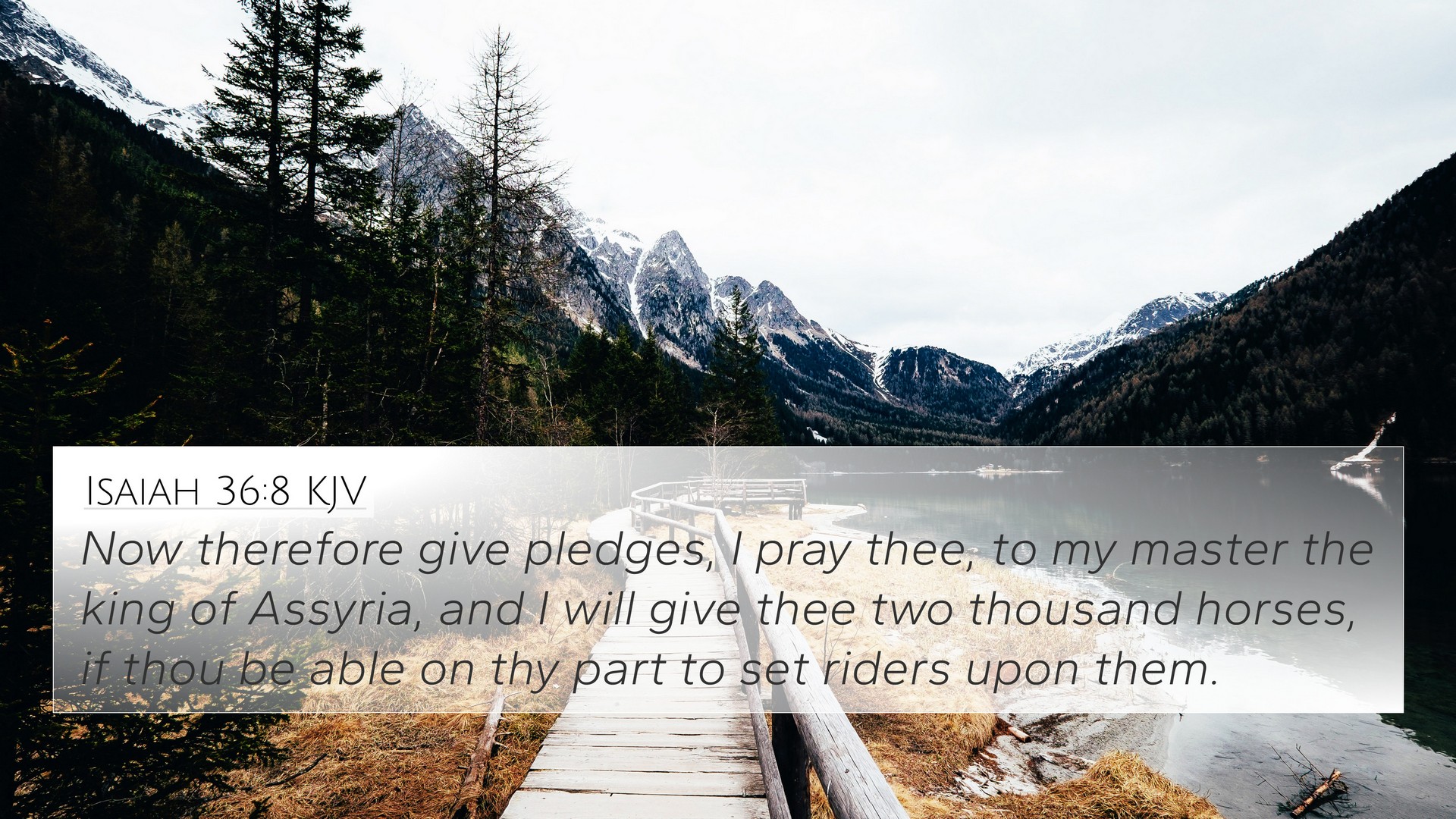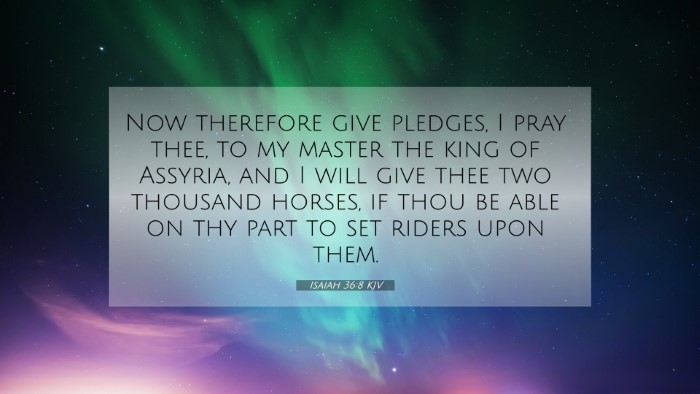Understanding Isaiah 36:8
This verse is a moment where King Hezekiah's kingdom is pressured by the Assyrian envoy, Rabshakeh. The challenge presented creates a profound context for theological reflection and cross-referencing Biblical texts.
Summary of Isaiah 36:8
In Isaiah 36:8, the Assyrian representative demands a show of trust from the people of Judah by suggesting that they engage in a form of barter, offering their resources in exchange for relief from conflict. This situation highlights themes of faith, reliance on God, and the moral conundrums faced during trials.
Thematic Analysis
The verse evokes several critical themes found throughout scripture, particularly regarding:
- Faithfulness: The test of faith during adversity.
- Trust in God: The call to rely on divine providence rather than human strength.
- Divine Sovereignty: God's control over nations and events.
Connections to Other Bible Verses
Isaiah 36:8 can be cross-referenced with various passages that enhance the understanding of its message. Here are key connections:
- 2 Kings 18:26-27: Corresponds with the Assyrian envoy's demand for a symbol of submission.
- Isaiah 7:2: Reflects the fear in Judah when confronted by adversaries.
- Psalm 20:7: Speaks to the reliance on God rather than horses and chariots.
- Isaiah 37:33-35: Highlights God's promise of protection against Assyria.
- Jeremiah 17:5: Discusses the consequences of trusting in man rather than God.
- Proverbs 3:5-6: Encourages trust in God for direction and wisdom.
- Isaiah 41:10: Provides comfort on God’s presence during trials.
- Matthew 6:25-34: Jesus teaches about trust and provision from God.
- Philippians 4:19: Affirms that God will supply all needs.
- 1 Peter 5:7: Urges casting all anxieties on God because He cares.
Interpretation Insights from Commentators
Various public domain commentators provide depth to the understanding of Isaiah 36:8. Here are some insights:
- Matthew Henry: He emphasizes the foolishness of relying on human wisdom instead of divine assistance, warning against negotiating with spiritual enemies.
- Albert Barnes: He notes the historical context of the verse, observing the intent of the Assyrian king's strategy in weakening Judah’s resolve.
- Adam Clarke: Clarke elaborates on the nuances of the Assyrian demands, suggesting this as a test of Hezekiah's faith and the people’s trust in God.
Conclusion
Isaiah 36:8 serves as a pivotal verse that invites believers to explore the connections between faith, trust, and divine intervention in times of adversity. By employing various tools for Bible cross-referencing and thematic analysis, the faithful can derive rich insights relevant to both ancient and contemporary challenges.
Further Study Suggestions
To enhance understanding, consider utilizing:
- Bible concordance for in-depth word studies related to trust and faith.
- Tools and resources for cross-referencing to deepen thematic exploration.
- Comparative studies of passages that relate to Hezekiah’s challenges.
- Cross-reference guides for sermon preparation focusing on divine protection.
- Inter-Biblical dialogue connecting the Old Testament context with New Testament teachings.











